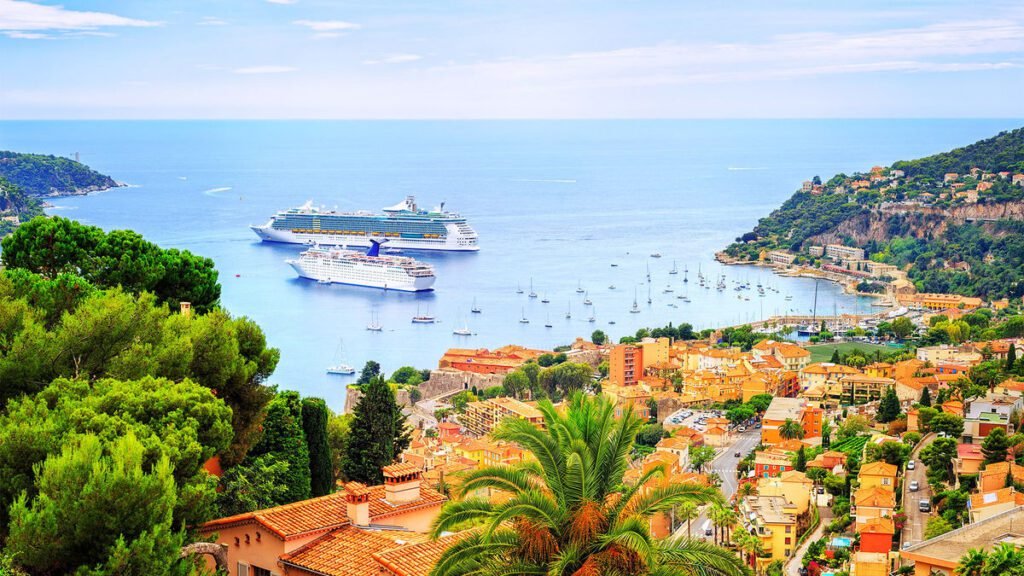On July 3, Christian Estrosi, the mayor of Nice, made headlines as he approached the Royal Caribbean International’s Voyager of the Seas, boasting a capacity of 3,602 passengers, via dinghy while it was docked in Villefranche-sur-Mer. Footage of this unexpected encounter revealed Estrosi informing the crew, "You are not allowed to be there," highlighting a growing tension on the French Riviera regarding cruise industry regulations.
This incident underscores the ongoing attempts by various cities along the French coastline to impose stricter limitations on cruise ships, sparking debates over port authority and jurisdiction. Following Nice’s lead, neighboring destinations like Cannes have also pushed for enhanced regulations. However, Nice’s initial legislative efforts faced setbacks, with the first proposal withdrawn and a subsequent law suspended by a judge due to jurisdictional issues.
As a result, the Voyager of the Seas remained docked, and Estrosi was barred from discussing matters directly with the ship’s officers. According to a spokesperson from Royal Caribbean Group, any visit from local authorities must adhere to a formal request process, emphasizing the need for protocol.
Protests and Their Impact
Estrosi took to Instagram to document the standoff, emphasizing his commitment to environmental protection and air quality as key factors behind the cruise restrictions. This is particularly relevant in the context of widespread protests against overtourism seen across Europe, as destinations like Barcelona, Amsterdam, and Venice have initiated their own regulations.
In recent developments, Nice’s latest port law attempted to prohibit ships exceeding 450 passengers and those with more than 2,500 passengers from entering Villefranche-sur-Mer. Following public backlash and legal challenges, the law has yet to materialize completely. Cannes also proposed a law limiting daily cruise passenger numbers and frequency of large ship visits, which was enacted without consultation from industry stakeholders, drawing criticism from the Cruise Lines International Association (CLIA) Europe.
A Collaborative Approach
The introduction of regulations has prompted a collaborative dialogue among local politicians, business owners, and maritime stakeholders. A meeting took place on July 11, with plans for another gathering in September, which CLIA has also been invited to join. CLIA expressed appreciation for this initiative, aimed at fostering dialogue and finding workable solutions that would allow cruise operations to continue while still addressing concerns related to pollution and community welfare.
As regulations become more stringent, experts suggest that cruise lines with smaller vessels may gain a competitive advantage in European waters. According to Sandy Chen, a professor of hospitality and tourism at Ohio University, the changes could expand the market share for these operators. Crystal Cruises, for instance, supports size restrictions in busy ports, emphasizing the detrimental effects of overcrowding on passenger experiences.
Similarly, Carnival Cruise Line acknowledged that their larger ships face challenges in accessing various European ports, which has led to a strategic focus on private island destinations. Explora Journeys, specializing in smaller ships, is committed to building trusting relationships with port towns, ensuring a respectful and sustainable cruise experience.
The Future of Cruise Operations
While the implementation of size limitations might deter some larger cruise ships from the region, experts believe they will find alternative ports despite increased operational costs. The prevailing sentiment among European port cities is shifting from accommodating excessive volume to prioritizing sustainable impact. The message is clear: cruise lines must adapt to avoid exclusion from these sought-after destinations.
As discussions continue, the maritime landscape in Europe faces a pivotal moment. Stakeholders are increasingly aware that the previous business model focusing primarily on volume cannot sustain itself amid rising environmental and social pressures.


